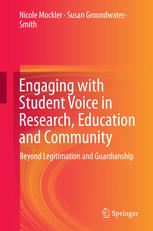

Most ebook files are in PDF format, so you can easily read them using various software such as Foxit Reader or directly on the Google Chrome browser.
Some ebook files are released by publishers in other formats such as .awz, .mobi, .epub, .fb2, etc. You may need to install specific software to read these formats on mobile/PC, such as Calibre.
Please read the tutorial at this link: https://ebookbell.com/faq
We offer FREE conversion to the popular formats you request; however, this may take some time. Therefore, right after payment, please email us, and we will try to provide the service as quickly as possible.
For some exceptional file formats or broken links (if any), please refrain from opening any disputes. Instead, email us first, and we will try to assist within a maximum of 6 hours.
EbookBell Team

0.0
0 reviewsThis work interrupts the current “consulting students” discourse that positions students as service clients and thus renders more problematic the concept of student voice in ways that it might be sustained as a democratic process. It looks at student voice holistically across realms of classroom practices, higher education, practitioner inquiry and policy formulation. The authors render problematic the “empowerment” rhetoric that is the dominant and insufficient narrative justifying consulting children and young people. They explore the many contradictions and ambiguities associating with recruiting and encouraging them to participate and the varying impacts of different circumstances on the ways in which student voice projects are enacted. They perceive that it is possible for student voice projects to be subverted from both above and below as varying stakeholders with varying purposes struggle to manage and control projects. Importantly, the book reports on research that identifies and highlights conditions for initiating and sustaining student voice and include “beyond school” dimensions that consider young people as “audiences” who can inform community facilities, their development and design as well as undergraduate students in universities. These cases are not reported as celebratory, but rather act as narratives that illuminate the many challenges facing those who chose to work with young people in authentic ways. It both advances methodologies for engaging young people as active agents in the design and interpretation of research that concerns them and offers a critique of those methods that see young people as the objects of research, where the data is mined for purposes that do not recognise that students are the consequential stakeholders with respect to decisions made in their interests.